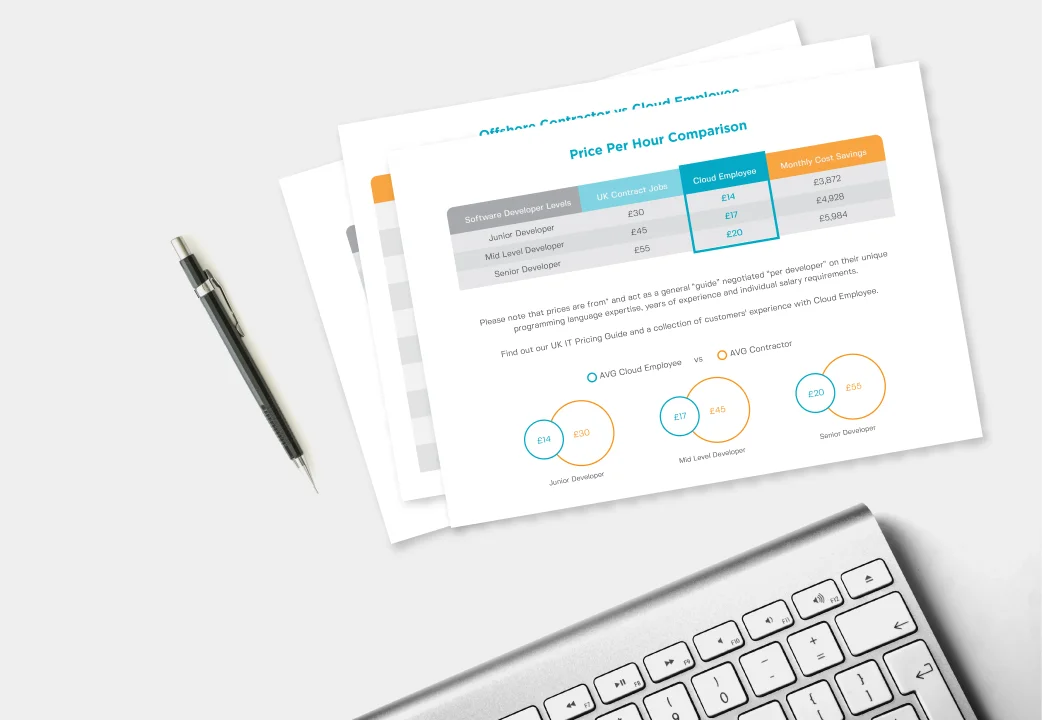As newer technologies continue to be developed, aspiring and current developers must also continually keep up with new technologies and programming languages to remain competitive in the constantly evolving tech landscape.
As a result, developers are somewhat forced to quickly adapt and learn at a faster rate. Aside from the difficulty of studying completely new technology, the need to learn it at a quicker pace adds to the challenge for all developers, no matter what career phase they are in.
Whether you’re still a programming student or a budding developer exploring more technologies, here are six tips that you can apply to learn programming faster.
1. Always Start with the Basics
It can be quite exciting to immediately tackle advanced programming techniques at first; however, one of the most common mistakes students or budding developers make is that they try to skip the basics or spend less time thoroughly learning it.
While this may work in some fields of knowledge, in programming, one should make a point to gain a solid grasp of the fundamentals of the language or framework they are learning.
Having the basics pat down will not only help you learn how to code faster but will also prevent you from writing messy code or getting stuck in an error or technical problem when you reach the more advanced requirements of your project. Overall, this will help save you time because you don’t have to go back to the start and learn it again.
The more you understand the basics, the easier it will be for you to understand advanced concepts and learn programming faster.
2. Go Ahead and Play with Your Code
In school, we have always been taught that there is a right and wrong answer for every question or problem. It’s no wonder that some beginners or developers carry this idea on now that they are working and question whether they are inputting the ‘right’ code or not.
While there is a proper structure and recommended ways to write code to achieve a certain output, it’s also possible to arrive at the same results using a different code structure—one that may be more simple, more efficient, or easily scalable or maintainable in the future.
As a practice, try to come up with different ways to produce a particular output. Don’t be afraid to play around with possibilities! Doing so will allow you to know how certain functions affect your output and help you gain more knowledge of what works and doesn’t work.
When you encounter a specific requirement or problem in the future, you can be confident in knowing that you can tinker with your code, if the ‘right’ code doesn’t work.
3. Take Advantage of Online Resources
This one’s a no-brainer, but is still an equally important factor to learn programming faster. When faced with a difficult concept or technical problem, we can easily consult our friend—the internet. In fact, this is one of the best ways to learn to programme on your own.
From blog and video tutorials to online forum sites such as Stack Overflow and GitHub, there’s no excuse for any developer not to fully learn to code using a certain programming language or technology.
Websites such as Pluralsight, freeCodeCamp, and Codecademy are just some of the countless websites that offer free programming courses and tutorials to help you learn a particular programming language quickly.
Try not to stick to just one resource and absorb as much knowledge as you can.
Related Articles:
10 Best Websites to Practice Your Coding Chops
5 Best Websites to take Programming Courses
4. Learn from Mistakes
“Many times what we perceive as an error or failure is actually a gift. And eventually we find that lessons learned from that discouraging experience prove to be of great worth.”― Richelle E. Goodrich, Smile Anyway
It’s only natural to find bugs while developing software; however, the ability to identify and resolve it is more important.
When you stumble upon a technical issue that you couldn’t quite fix, jot down what could have been its possible causes and how you eventually resolved it. Taking note of these mistakes will help you identify similar factors or situations before they can even happen, thus successfully preventing from committing the same mistake again.
It may take a while to detect a bug, but once you identify it, you will have no problem in quickly resolving it.
In addition, don’t just learn from your mistakes; learn from others’ mistakes as well and don’t commit the same errors yourself.
5. Don’t Be Shy to Seek for Help
Asking for help or guidance is and should never be looked down upon. In fact, it should be seen as a sign of willingness to improve.
While it can be incredibly fulfilling to learn a new concept or technology or solve a problem on your own, the reality is that you need others to learn programming faster. Through a senior’s mentorship or a peer’s feedback, you can gain new insights or see details that you may have missed.
However, it is recommended that before you seek help, try to figure it out on your own first. Coding Dojo suggests the “20-minute rule”. Learn a concept or solve a problem on your own for 20 minutes before asking for help. Make sure you have done all that you can and you have used all available resources before reaching out to others.
And if both you and your teammate both arrive at a stumbling block, you can always refer to Tip #3!
6. Don’t Stop Practising
As the saying goes, “Practice makes perfect”, and when you want to learn computer programming faster, this becomes a critical factor for success. In coding, learning theoretically from books and online resources isn’t enough; one must actually apply those concepts.
After all, programming is hands-on work, so it makes sense to spend more time coding on a computer than reading a book on how to code.
Some experts suggest that starting personal projects, such as building your own mobile application, are an effective way to put your knowledge to the test. Some might find this a tedious way to learn, however, this can definitely help you learn programming faster and more effective overall.
The more you practice your craft, the more knowledge and experience you can gain, enabling you to take on bigger and more challenging tasks in your personal project or at work.
One Step at a Time
As a final tip, remember to take things a step at a time. Learning something faster doesn’t mean you need to take in everything simultaneously and as quickly as you can. In fact, it’s quite the opposite—you need to put in a lot of time and effort at each step in order to fully master a programming language or framework and be able to apply it.
Hopefully, these six tips will help you learn your chosen programming language at each step of your journey!
Are you up for a challenge? Join our growing team at Cloud Employee! Send us your updated CV to [email protected] with the position you're applying for in the subject line. Follow us on Facebook, Twitter, and LinkedIn or check our Careers page for our latest updates and job postings.
Hire A Developer Now!
Featured Article

How to Become a High-Performing Developer

CSS grid vs. Flexbox: which to use when?

Download Our Developer Pricing Guide
We did an analysis on the difference between western and Philippines developer salaries. Uk, USA and Australia pricing comparisons available.
Download